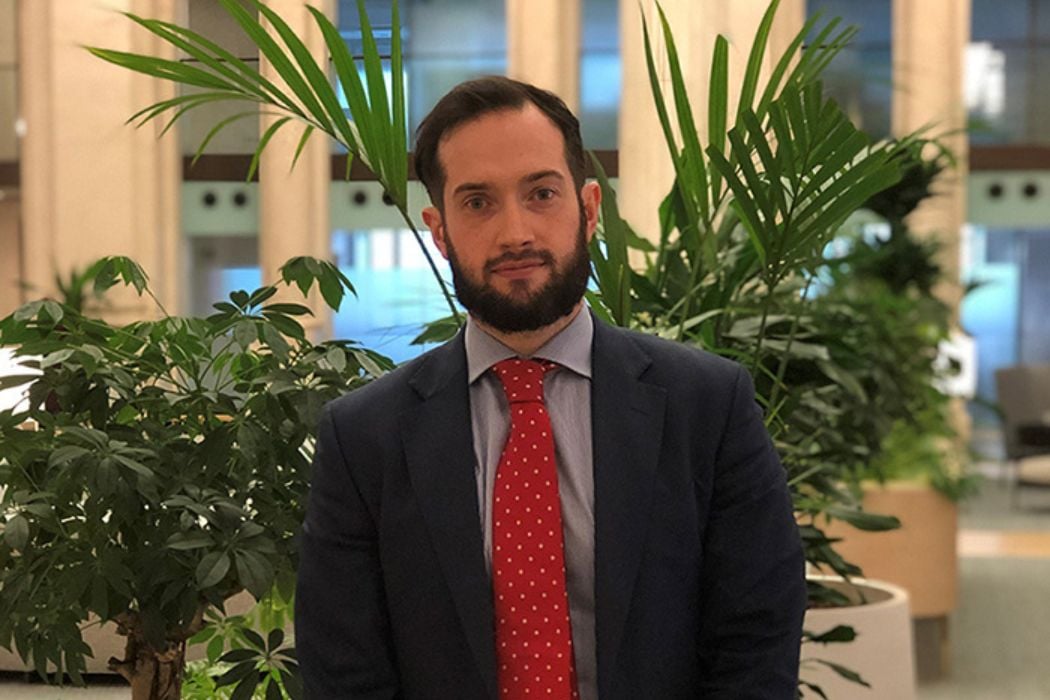ESG and war in Ukraine – a new challenge for responsible investors

The war in Ukraine has upended markets, sent commodity and oil prices spiralling and left ESG (environmental, social and governance) investors reassessing their ethics. Until now, the defence sector had been anathema to ESG investing – but are we thinking again? Meanwhile, areas like clean energy are rocketing as the west attempts to wean itself off Russian oil. So what is the outlook for ESG in this new geopolitical environment?
Is this the first war of the ESG age?
The horrific conflict in Ukraine has left us all appalled. Civilians bombed in their own homes. Lines of refugees at the Polish, Hungarian, Romanian and Moldovan borders. The bravery of Zelensky and the Ukrainian people. The war crimes and bombed out hospital units. The children.
Steve Fox, CEO of Veracity Worldwide has described it as the “first war in the ESG age”. Fox is talking about the decision by global brands such as Coca-Cola and McDonalds to pull out of the Russian market due to the invasion of Ukraine. The motivation behind these decisions is mixed – it is either a protest move, a bid to comply with sanctions, or to avoid the risk and bad publicity associated with staying in Russia.
Can companies balance ethics and creating shareholder value?
To us, the withdrawal of these global businesses from Russia seems unsurprising given the vast majority in the west view the invasion as an attack on innocents and democracy. But looking back at history, it isn’t normal behaviour for corporates. In the old world, according to economists like Milton Friedman, companies existed to make products, provide services and generate returns for shareholders. They might pull out of a war zone to avoid risk, but they wouldn’t take a moral stance on military conflict.
But investing has changed, and in a world governed by ESG criteria, companies are expected to be moral actors. It isn’t just warfare. Companies like Nike and Netflix have taken a stance on racial discrimination, and movements such as #metoo. In this new ESG era, post the invasion of Ukraine, companies have to weigh up potentially conflicting business objectives – shareholder returns, their environmental and social impact and arguably helping (or being seen to help) the Ukrainian resistance.
Are shareholder values and ethics conflicting goals?
Actually, to an extent, these goals are pushing in the same direction. Think about Coca-Cola – around 9% of their global revenue comes from Russia – and others like McDonalds, Starbucks and H&M had a big presence there too. Beyond the reputational damage of continuing to do business there, there is also a cold business calculation at play. In a scenario where the rouble crashes, banks are cut off and you cannot export cash, it would be impossible to sell anything in Russia. The smart play is to sell bottles of coke and coffee elsewhere, which is what they should be doing from an ethical standpoint, but it also makes sense to investors.
What are the ESG implications of the conflict on oil and gas?
Assets generally shunned by ESG investors pre-war, may now have a period of short-term strategic importance. Russia’s ability to wage war is funded by oil and gas exports, so its effort is helped by high oil and gas prices. Reducing the use of oil and gas is good for the environment and for Ukraine. For an oil company, opening lots of smaller projects to drill lots of oil outside Russia is bad for the environment. That said, it also reduces oil prices and western reliance on Russia and so is good for Ukraine.
Are defence stocks becoming palatable?
Even weapons have lost some of their pariah status. The old frame on ESG was roughly focused on ‘reducing carbon emissions and avoiding social harm’. This was interpreted as weapons being bad. The post-Ukraine frame on ESG is now ‘in the long-term, focus on reducing carbon emissions and avoiding social harm, but in the short term help the Ukraine’. But what Ukrainians need right now is weapons.
If you are an ESG investor, you need to have a theory on whether you think it is net good or bad for humanity and democracies to procure powerful weapons to fight wars against dictatorships. In the pre-ESG age, you just had to understand the finances of the company selling the weapons. That’s no longer enough. Even if you care only about making money, ESG now informs both what companies do and how markets react.
Will the conflict in Ukraine accelerate the need for clean energy and decarbonisation?
Markets have recognised this too. The invasion of the Ukraine prompted a typical ‘risk off’ response in markets: equities fell and assets like gold, rose. But one of the best performing asset types since Putin launched his invasion has been clean energy stocks. There is an expectation that the push to decarbonise will accelerate given clean energy is generally provided on ‘your doorstep’ rather than imported from a war zone. Companies helping the world decarbonise are problem solvers. The world’s problem right now, is having very high energy prices.
How can doing the right thing benefit investors?
ESG has been here before and in 2020 (during the COVID-19 pandemic) investors learned quickly that companies that solved problems become highly sought after. We think this is the more important bit of what is going on today. It’s not so much about telling the world you are doing the right thing morally. It’s that the right thing morally does not conflict with your duty to create value for shareholders.
In case you missed it:
- Why investing in the climate change agenda is a key theme this year
- How ESG investing ‘transformed’ a client’s pension
If you are new to wealth management and would like to learn how this can benefit you, we can put you in touch with our team of experts that can help.
New to Canaccord Genuity Wealth Management?
If you are new to wealth management and would like to learn how this can benefit you, we can put you in touch with our team of experts that can help.
Investment involves risk. The value of investments and the income from them can go down as well as up and you may not get back the amount originally invested. Past performance is not a reliable indicator of future performance.
This is not a recommendation to invest or disinvest in any of the companies, funds, themes or sectors mentioned. They are included for illustrative purposes only.
The information provided is not to be treated as specific advice. It has no regard for the specific investment objectives, financial situation or needs of any specific person or entity.
The information contained herein is based on materials and sources that we believe to be reliable, however, Canaccord Genuity Wealth Management makes no representation or warranty, either expressed or implied, in relation to the accuracy, completeness or reliability of the information contained herein. All opinions and estimates included in this document are subject to change without notice and Canaccord Genuity Wealth Management is under no obligation to update the information contained herein.
Find this information useful? Share it with others...
Investment involves risk and you may not get back what you invest. It’s not suitable for everyone.
Investment involves risk and is not suitable for everyone.
